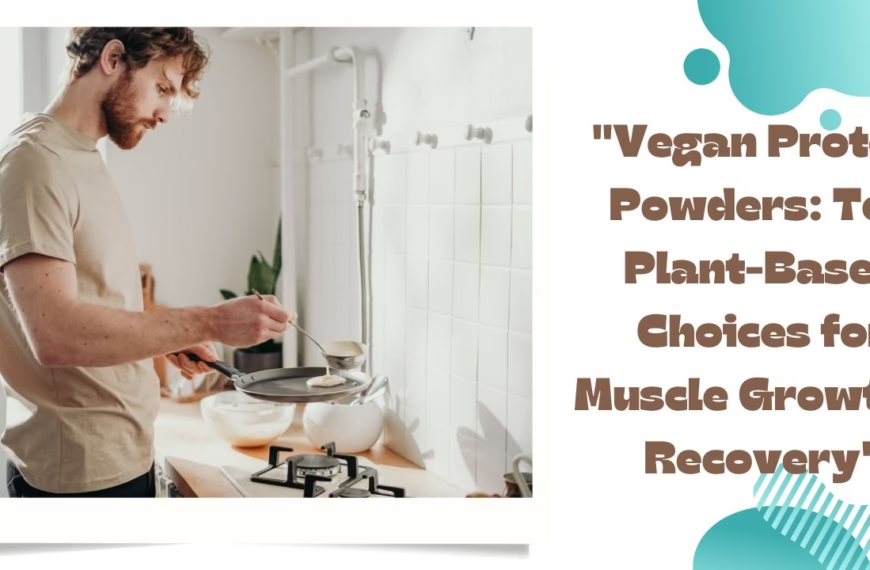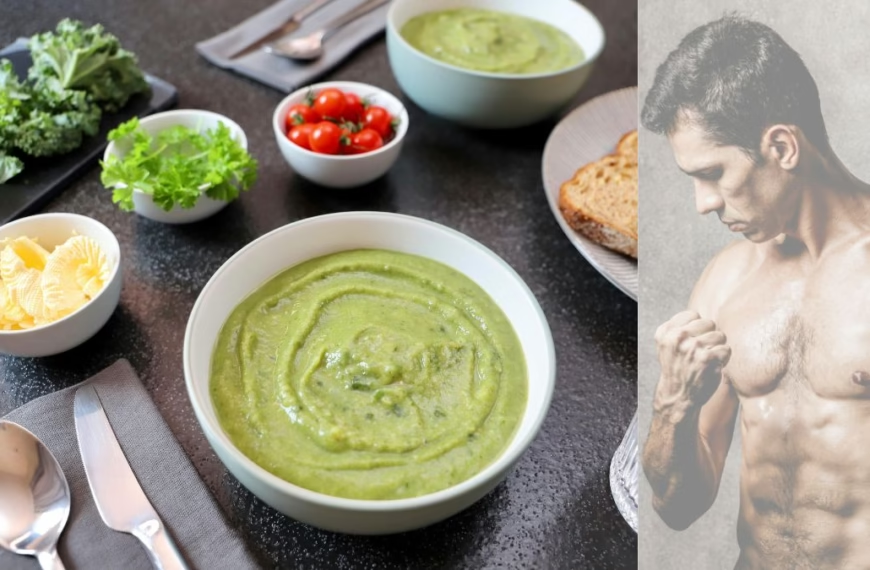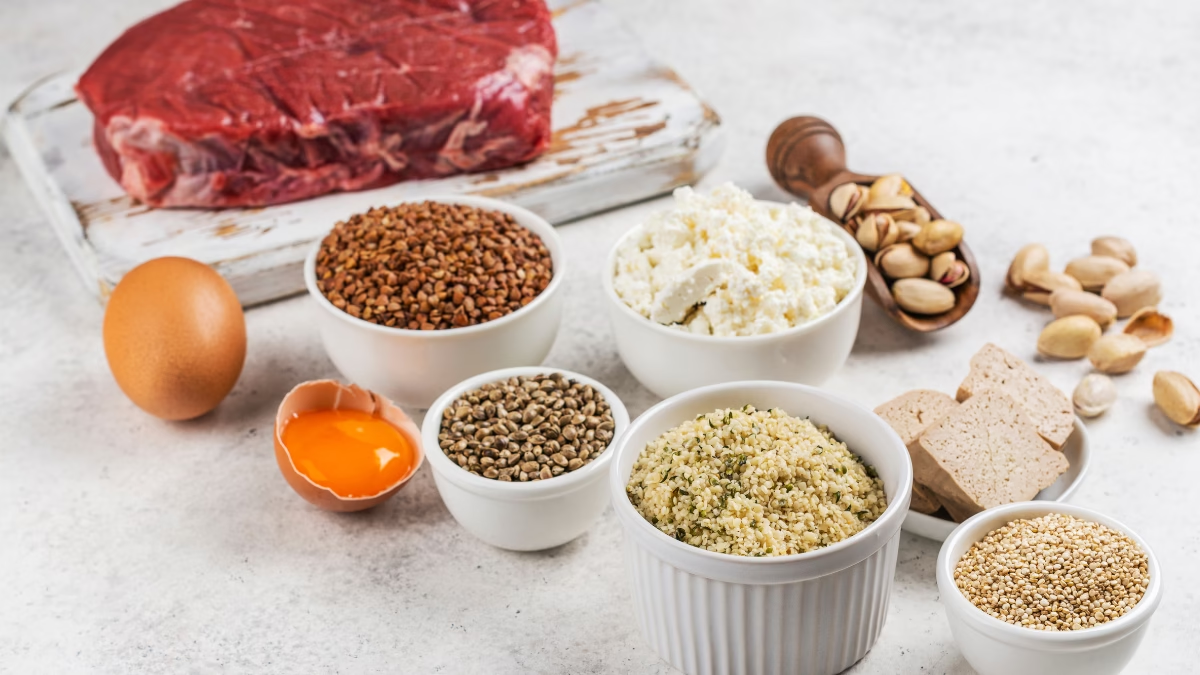
Protein is an essential macronutrient that plays a critical role in muscle growth, immune function, and overall wellness. But when choosing between plant-based vs. animal-based protein, which one truly provides the best nutrition?
“Learn more about the benefits of plant and animal proteins with this guide from Healthline.”
What is Protein and Why Does It Matter?
Proteins are composed of amino acids, the building blocks needed for muscle repair, cell regeneration, and metabolic functions. While all proteins serve a similar purpose, the source—whether plant-based vs. animal-based protein—determines their nutritional composition.
Animal Protein: Pros & Cons
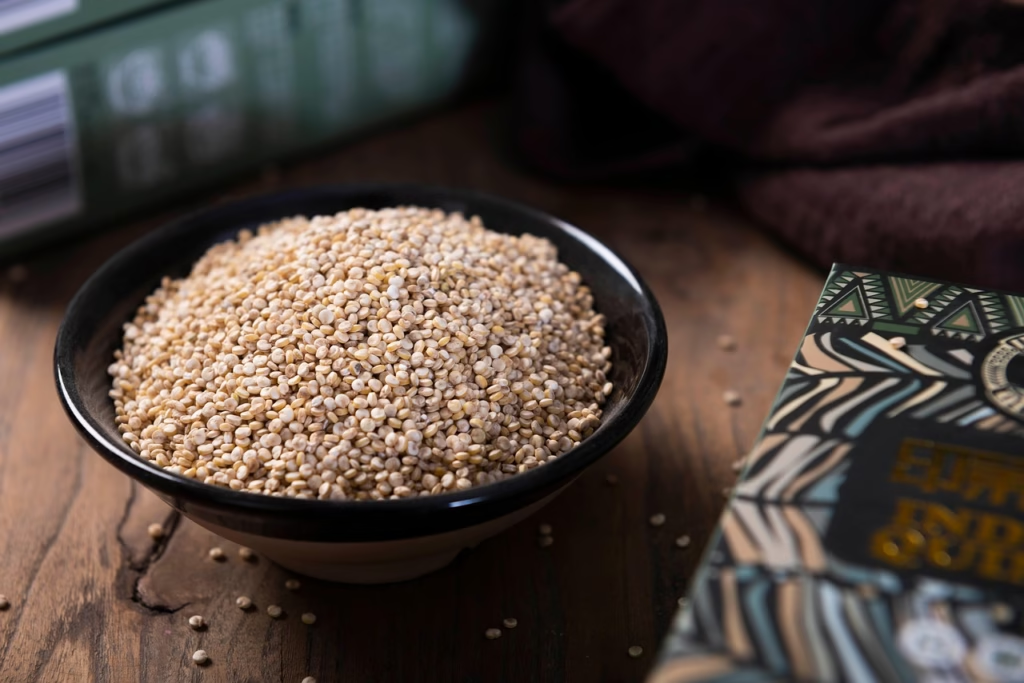
Animal-based proteins are considered complete proteins, meaning they contain all nine essential amino acids needed for muscle recovery and body function.
✅ Pros of Animal-Based Protein
“For a deeper dive into protein digestion, check out this detailed article from Greatist.”
Plant Protein: Pros & Cons
✔ Complete Amino Acid Profile – Supports muscle growth & recovery. ✔ High Bioavailability – Easier for the body to absorb. ✔ Rich in Iron & B12 – Prevents anemia and boosts energy.
🚨 Cons of Animal-Based Protein
❌ Higher in Saturated Fats – Excess consumption can impact heart health. ❌ May Cause Inflammation – Some processed meats are linked to inflammatory responses.
🔹 Best High-Protein Animal-Based Choices ✔ Eggs (6.3g protein per egg) ✔ Chicken Breast (35g protein per serving) ✔ Greek Yogurt (13g protein per serving) ✔ Salmon (40g protein per serving)
Plant-Based Protein: Pros & Cons
✔ Rich in Fiber – Supports gut health and digestion. ✔ Packed with Antioxidants – Helps combat oxidative stress. ✔ Lower in Saturated Fat – Improves heart health and weight management.
🔹 Best High-Protein Plant-Based Choices ✔ Lentils (17.9g protein per cup) ✔ Chickpeas (14.5g protein per cup) ✔ Quinoa (8.1g protein per cup) ✔ Tofu (9g protein per serving)
Comparing Plant-Based vs.Animal-Based Protein for Muscle Growth
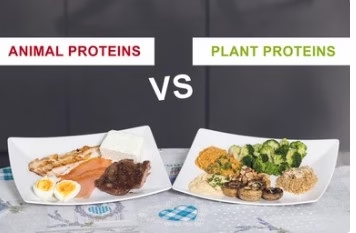
When it comes to muscle-building nutrition, animal proteins are often preferred due to their higher leucine content, an amino acid crucial for muscle recovery. However, plant-based proteins can be equally effective if consumed in proper combinations (e.g., quinoa + beans or rice + lentils).
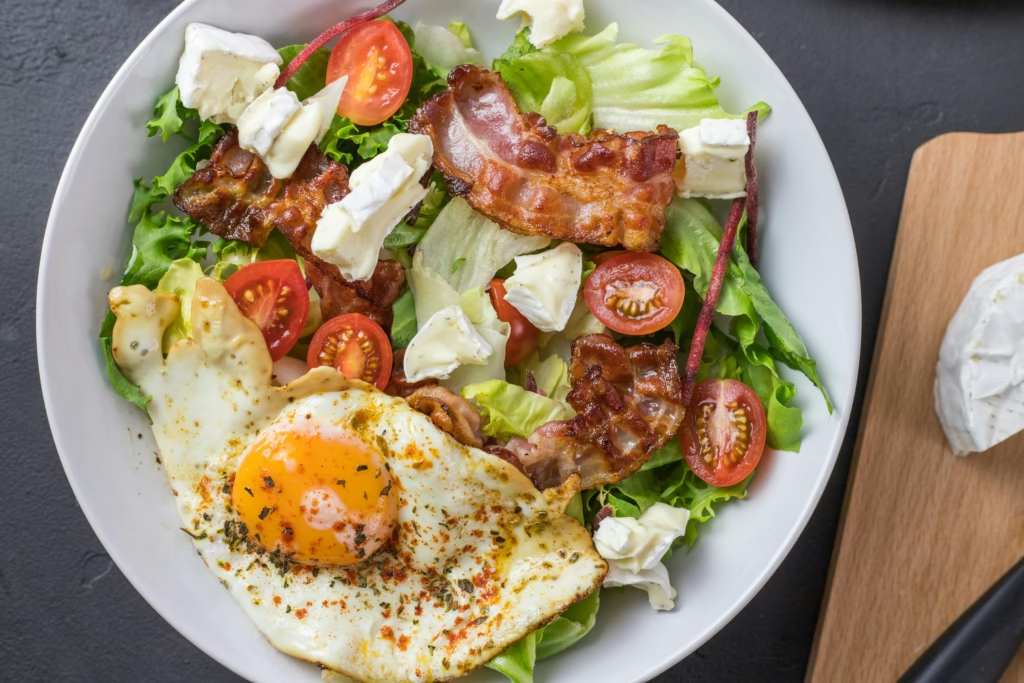
Final Verdict: Which Protein Type Should You Choose?
Both plant-based vs. animal-based proteins provide essential nutrients for overall health. The best choice depends on:
✔ Dietary Needs – Are you prioritizing muscle-building or heart-friendly nutrition? ✔ Health Goals – Do you need a complete amino acid profile or a fiber-rich alternative? ✔ Sustainability Concerns – Plant-based proteins have a lower environmental impact.
✅ For more high-protein food comparisons, check out our pillar post: 8 High-Protein Foods That Outperform Eggs.
“Want expert meal ideas tailored to your needs? Visit Bodybuilding.com.”


